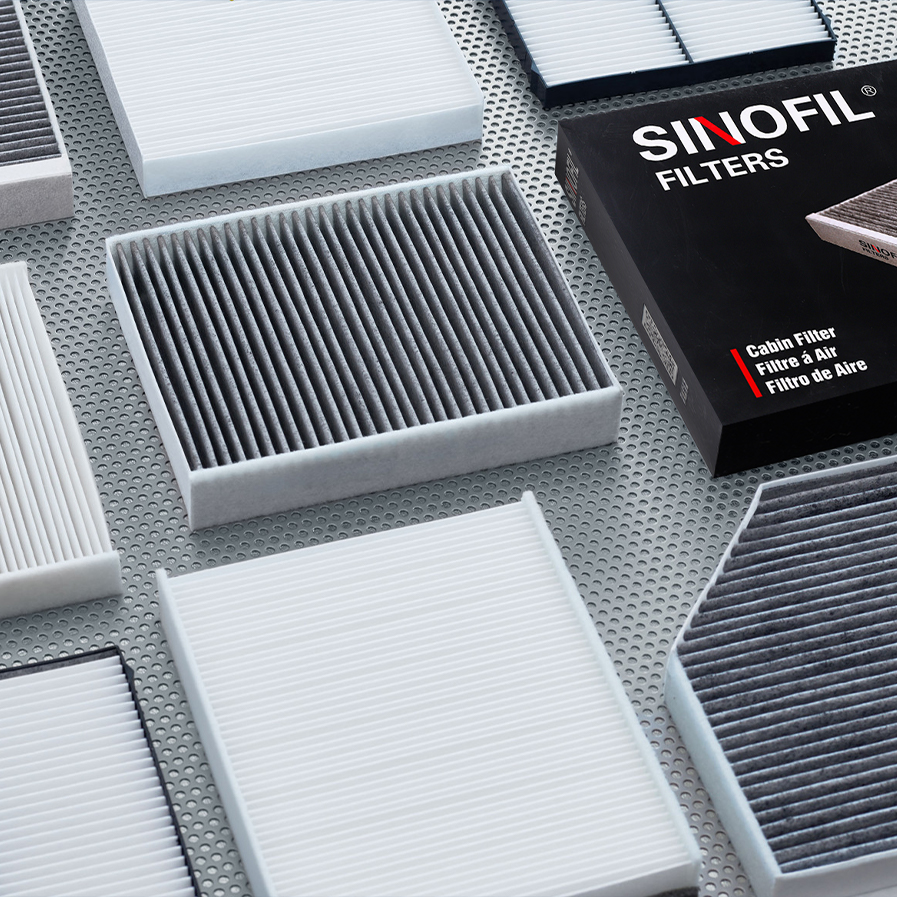Home / News / How does a clean cabin filter contribute to better air quality inside the vehicle?
A clean cabin filter plays a pivotal role in maintaining excellent air quality within the confined space of your vehicle, benefiting both your health and overall driving experience. Similar to how masks shield us from harmful airborne particles outdoors, cabin filters act as a barrier against pollutants that can infiltrate the interior of your car. These filters are designed to capture a wide range of contaminants including dust, pollen, bacteria, exhaust particulates, and even odors, ensuring that the air you breathe while driving remains clean and fresh.
One of the primary advantages of a high-quality cabin filter lies in its ability to effectively trap particulate matter, such as PM2.5, which is known for its harmful effects on respiratory health. These tiny particles, often released by vehicle exhausts and industrial pollutants, can penetrate deep into the lungs, causing respiratory issues and exacerbating allergies and asthma. By preventing these particles from circulating inside the cabin, a clean filter significantly reduces your exposure to such health hazards, thereby promoting better respiratory health during your daily commute or long road trips.
Moreover, cabin filters that incorporate advanced technologies like activated carbon and PROTECT+ enhance their effectiveness manifold. Activated carbon, strategically embedded within the filter media, adsorbs gases and unpleasant odors, ensuring that the air inside your car remains not only clean but also free from undesirable smells. This feature is particularly beneficial in urban environments where traffic fumes and industrial emissions can lead to persistent odors and potential health risks.

Regular maintenance and timely replacement of your cabin filter are crucial to sustaining its effectiveness. Over time, as the filter accumulates contaminants, its ability to capture new particles diminishes. This gradual decline can compromise the air quality inside your vehicle, potentially leading to increased exposure to allergens and pollutants. Manufacturers typically recommend replacing cabin filters every 12,000 to 15,000 miles, but this interval may vary based on driving conditions and environmental factors. Checking and replacing the cabin filter as part of your routine vehicle maintenance not only ensures cleaner air but also contributes to the longevity and optimal performance of your car's heating, ventilation, and air conditioning (HVAC) system.
Beyond health benefits, maintaining a clean cabin filter also enhances driving comfort and concentration. Poor air quality inside the vehicle can lead to fatigue, headaches, and reduced alertness, all of which are critical factors for safe driving. By ensuring that the air circulated within the cabin is purified and free from contaminants, drivers can maintain better focus on the road, improving overall safety for themselves and their passengers.
In conclusion, a clean cabin filter acts as a silent guardian of your respiratory health and overall well-being while driving. By effectively filtering out pollutants, allergens, and odors, it ensures that the air inside your vehicle remains clean and fresh, contributing to a more comfortable and safer driving experience. Regularly replacing your cabin filter and opting for filters equipped with advanced technologies can further amplify these benefits, offering peace of mind and enhanced air quality wherever your journey takes you.



 English
English Español
Español











 ++86 183 3391 1399
++86 183 3391 1399


 +86 183 3391 1399
+86 183 3391 1399
 +86 187 3296 0060
+86 187 3296 0060 Wangshigong Village, Wei County, Xingtai City, Hebei Province, China
Wangshigong Village, Wei County, Xingtai City, Hebei Province, China
